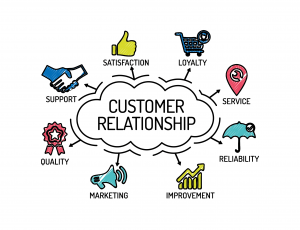
According to a recent Harvard Business Review article, depending on the industry, acquiring a new customer is 5 to 25 times more expensive than retaining an existing one. Moreover, in business markets, key customers account for greater amounts of suppliers’ business. For example, Walmart contributes to about 20% of P&G’s business. Similarly, Tetra Pak earns 50% of its revenues from 50 key customers. Furthermore, firms are increasingly consolidating their suppliers. Airbus reduced its supplier portfolio by 80% to work with few suppliers in a closer manner. Old fashioned sales approaches and reactive tactics are not very helpful in a rapidly changing business-to-business (B2B) environment. But what is more important to be successful in today’s highly competitive business markets is establishing, maintaining, and growing long-term customer relationships. Key account management focuses on all activities that will help firms establish, maintain, and grow key customer relationships in business markets. The goal of key account management is gaining sustainable competitive advantage, leading to profitability. The benefits of key account management for firms competing in the B2B space are plenty.
Understand customers better: In business markets, almost every customer needs a customized offering and, therefore, a deep understanding of the customer is very important. One of the important benefits of key account management is getting a better understanding of the customer. Firms can meet the needs of their customers in a proactive manner if they understand their customers well. This will also help firms to focus more on solving customer problems, which is more important in business markets.
Build better relationships with customers: Companies focusing on key account management develop individual relationships so that each customer becomes more loyal. Loyal customers offer companies several advantages – they bring more revenues, they recommend your product and services to others, and they continue to work with you on a long-term basis. The customer relationships in business markets can last very long, sometimes to perpetuity.
Increase customer satisfaction: Investing more resources to develop key account relationships will help companies focus more on fulfillment of customer needs (e.g., responding to customers quickly, just in time delivery, accurate order fulfilment), which will in turn increase customer satisfaction. Satisfied customers will not only bring more revenues, but also recommend your products and services to their peers and other connections.
Increase long-term customer value: The focus of key account management is adding value to customer relationships that will further lead to retention and realization of long-term customer value. According to Bain & Company’s research, based on the industry, 5% growth in customer retention rate can result in 25 to 95% growth in company’s revenues. The more the value you show to your customer, the more they will be willing to invest in your relationship.
Gain competitive advantage in the marketplace: The ultimate goal of key account management is to help firms gain competitive advantage in the marketplace by establishing, maintaining, and growing long-term customer relationships. Firms can gain advantages of both economies of scale and scope by working closely with key customers. Building strong relationships with key customers will provide strategic advantage to firms over their competitors, which will in turn lead to superior financial performance of firms.
Written By: Professor Kiran Pedada (Assistant Professor: Marketing), Indian School of Business.
Learn more about Centre for Business Markets
Learn more about Key Account Management and Customer Relationship Programme

